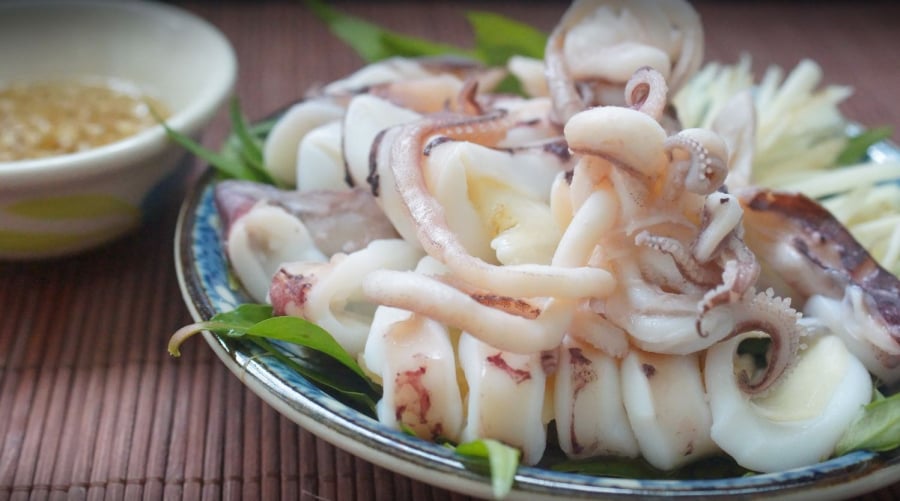The Nutritional Value and Benefits of Squid
Rich in heart-friendly omega-3 fatty acids
Squid contains a high amount of omega-3 fatty acids. The omega-3 fatty acids with anti-inflammatory properties play an important role in reducing the risk of cardiovascular diseases and other chronic diseases. Therefore, adding squid to the diet of people with heart diseases is one of the simple ways to keep the heart healthy.
Protein for muscle building
Squid provides a significant amount of protein for humans. In addition, squid also contains complete proteins with all 9 essential amino acids. This protein content is beneficial for building tissues and muscles. Squid is also friendly to low-fat diets and helps increase muscle mass.

Rich in choline for brain health
Squid is a rich source of choline, second only to eggs. Choline is an essential trace nutrient for brain and liver health. Choline helps prevent spinal abnormalities in developing fetuses. Therefore, adding squid to daily diet helps maintain a healthy brain, improve concentration, and enhance memory.
Rich in antioxidant selenium
Eating 100g of squid can provide about 65% of the body’s daily selenium needs. Selenium is an important trace mineral with antioxidant properties. Selenium activates various selenoproteins that improve immune function and protect the body from many health issues related to heart and cancer.
Who should not eat squid?
People with allergies
Squid is a seafood rich in protein, which can cause certain individuals to have allergies. If you find yourself allergic to squid (having allergies every time you eat squid), it is best to limit or avoid this food completely.
If not avoided, it can cause skin reactions, itching, or allergic pain and other symptoms.

People with stomach and liver diseases
Squid lives in water all year round and is a cold-natured food. After eating this dish, the body will become colder. People with weak stomach and liver often have a colder constitution. If they continue to eat cold food, they will create excessive cold air in the body, making the condition worse.
If you belong to the group of people with weak stomach and liver, it is best to limit eating squid and avoid very cold dishes.
People with skin conditions
Although squid is a valuable seafood, it is still a freely moving underwater creature. After eating, it can cause or worsen skin conditions. People with certain diseases such as eczema, rashes, or dermatitis should try to avoid eating squid to prevent or aggravate skin disorders.



































